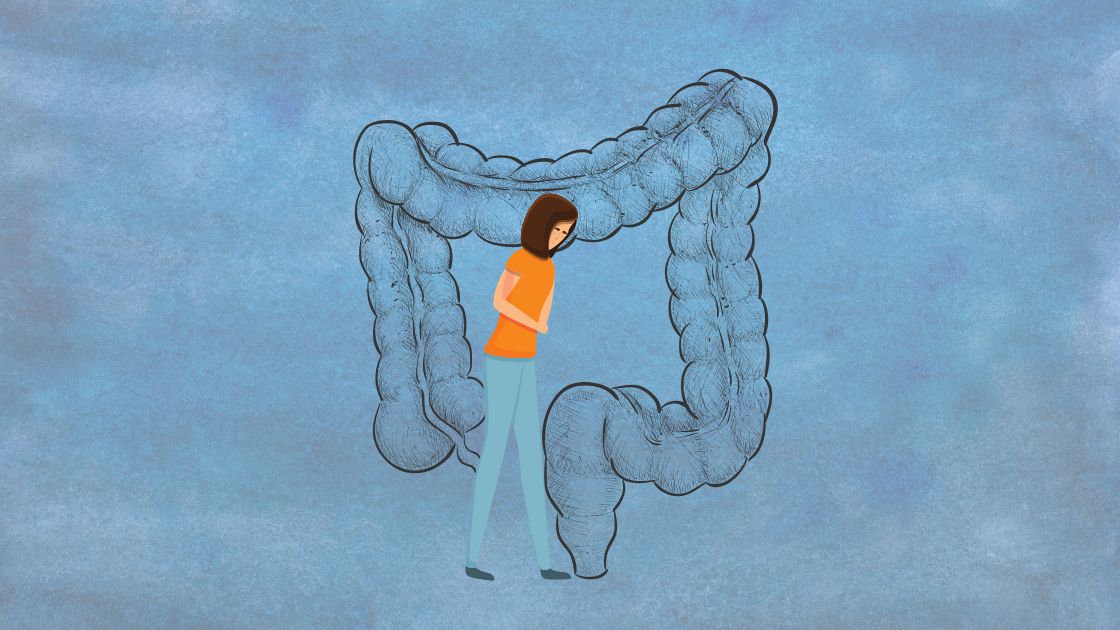Key takeaways:
~ Inflammatory bowel disease is a serious, life-altering diagnosis.
~Genetics plays a role in susceptibility to IBD
~Knowing which genetic variants you have may help you figure out which lifestyle changes would be most helpful.
What is Inflammatory Bowel Disease?
IBD is a general term that applies to both Chron’s disease and ulcerative colitis, which both cause chronic inflammation in the intestines. Crohn’s disease can affect any part of the GI tract but usually affects the small intestines. Ulcerative colitis is usually affecting the colon and rectum. [ref]
The immune system seems to go haywire in IBD and causes inflammation in the GI tract. This eventually leads to the destruction of part of the intestines causing pain, diarrhea, fever, malnutrition, and other symptoms.[ref]
Both genetic and environmental factors are thought to cause IBD. There is a disruption of the mucous lining in the intestines which changes the gut microbiome and causes an inflammatory response.[ref]
Related article: Emulsifiers, gut mucosa, and inflammation
Why a targeted, personal approach matters!
“Fix your gut!” seems to be the standard advice from most healthy living blogs, but concrete advice on how to actually accomplish this seems to be lacking. While general suggestions abound, specific actions that actually work for an individual are hard to find.
All of the general advice — fix your gut, eat more fiber, eat fermented foods, avoid sugar, grains, dairy, etc. — may work for some but not for everyone. We need to get personal here and take a good look at some of the genes that affect our microbiome.
I find the microbiome intriguing: the complexity of the interaction between our human genome, the gut microbiome, and environmental factors is mind-boggling.
While what we eat is important to our microbiome, our genes also play a role in which gut bugs will flourish and which ones will never take up permanent residence.
IBD Genotype Report:
Members: Log in to see your data below.
Not a member? Join here.
Why is this section is now only for members? Here’s why…
Lifehacks:
Diet and Lifestyle Actions:
NOD2 can be upregulated in the intestines by butyrate.[ref] Butyrate is a short-chain fatty acid produced by certain gut bacteria and also found in small amounts in foods such as butter and other full-fat dairy. Resistant starch (found in cooked and cooled potatoes and rice) feeds the kind of bacteria that produce butyrate.
Related Articles and Topics:
TNF-alpha: Inflammation and Your Genes
Do you feel like you are always dealing with inflammation? Joint pain, food sensitivity, skin issues, gum disease, etc… It could be that your body genetically gears towards a higher inflammatory response due to high TNF-alpha levels.
Emulsifiers in Processed Foods: Your genes and your microbiome
Our genes and environment contribute to our gut microbiome, allowing some species to flourish and keeping others away. How does this all come together to cause the diseases that plague our modern society?
Problems with IBS? Personalized solutions based on your genes
There are multiple causes of IBS, and genetics can play a role in IBS symptoms. Pinpointing your cause can help you to figure out your solution.

